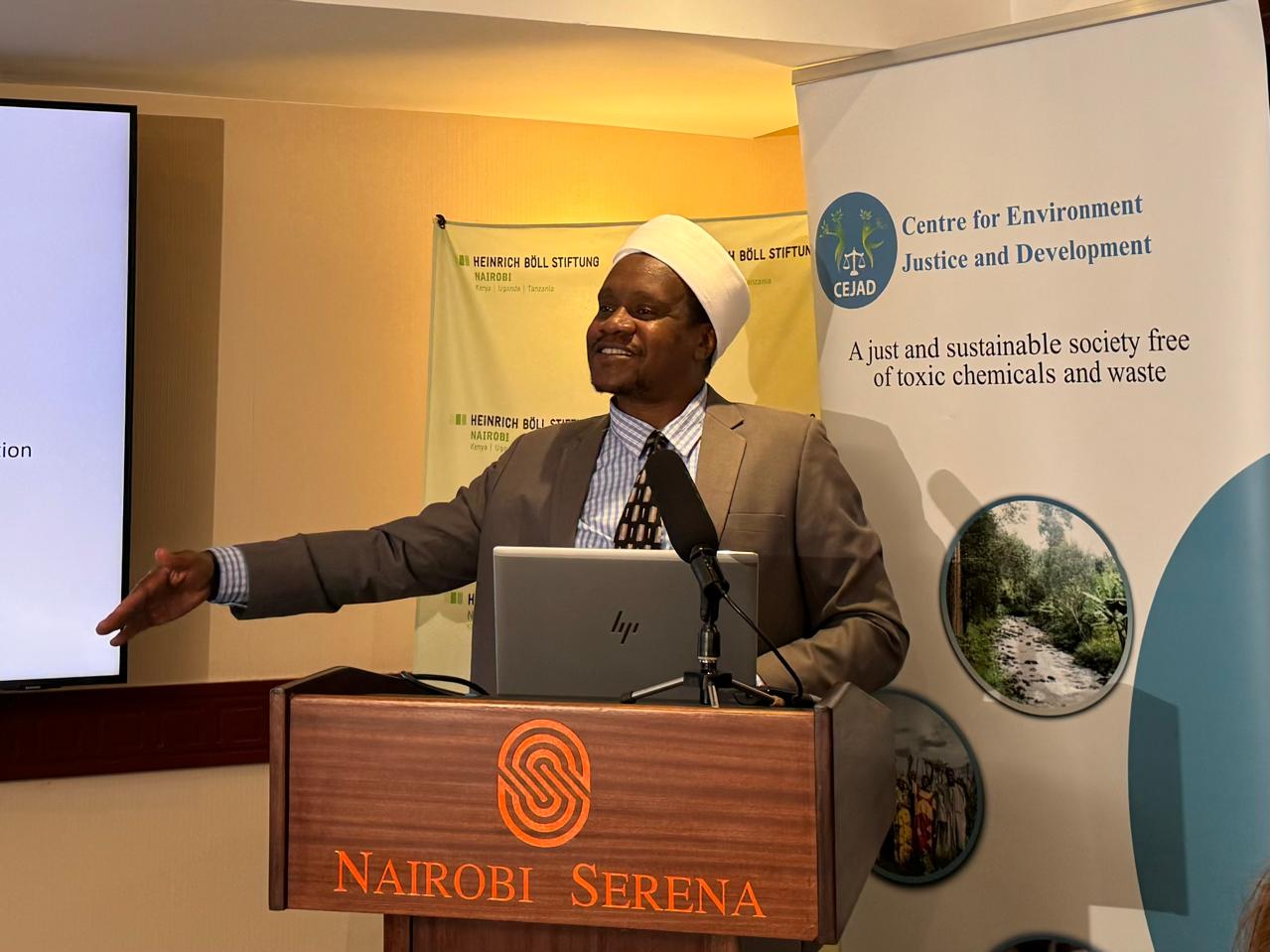
Nema's Director of enforcement Ayub Macharia has said that they want the Global Plastic Treaty to set clear operational approaches that ensure a consistent decline in plastic use and pollution
The Global Plastic Treaty is an international agreement currently being negotiated by around 175 countries to end plastic pollution at every stage of the material’s lifecycle, from manufacturing to disposal.
Speaking at an event by the Centre for Environment Justice and Development (CEJAD) and the Heinrich Böll Foundation (HBF), Macharia stressed the urgent need to address the escalating plastic pollution crisis.
Macharia traced the journey of global efforts
against plastic pollution, beginning with the United Nations Environment
Assembly's initial recognition of plastics as a critical environmental issue.
“The
discussion on plastics has evolved significantly,” he said.
Macharia underscored the importance of
addressing existing plastic waste, which he referred to as “plastic poison.”
He called for an inventory of legacy plastics,
explaining their adverse effects on health and the environment.
"These plastics were manufactured without standards, and they remain toxic to our communities," he noted.
Macharia
continued to highlight Kenya’s leadership in banning single-use plastics,
citing the recent regulation expanding the prohibition of imported plastic
packaging materials.
“The goal
is to gradually phase out problematic plastics, though achieving zero plastic
pollution may not be feasible immediately,” Macharia said.
He said a law mandating Extended
Producer Responsibility (EPR) was gazetted on November 4, 2024, requiring producers to register with
Nema within six months.
"The producers must form Producer Responsibility Organizations (PROs) and present EPR plans, including financial mechanisms and support for waste pickers," he said.
He also stated that importers will pay Sh150 per plastic item at entry points starting May 2025, aimed at managing end-of-life plastics.
“Give us the producers ‘big fish ‘of the plastics, not the users akina mama mboga na baba mboga,” Macharia said.
The director
of enforcement at Nema said that efforts to capture the "big fish" are
hindered by cartels.
He continued to urge the public for
cooperation in this crucial matter in avoiding plastics and reporting offenders
noting that all plastic carrier bags are banned, including lightweight versions
previously exempted due to gauge reduction by producers.
“Supermarkets and retail outlets are
prohibited from selling plastic bags unless used as part of packaged products,
which must be marked for traceability,” Macharia noted.
Macharia
asserted that regular inspections of producers are conducted to ensure
compliance with licensing conditions and the recent inspections revealed that no significant contraventions have occurred.
He concluded by saying that there are other alternatives to use like sisal bags, khaki,
woven, and reusable bags that have gained popularity since the initial ban in
2017.









